ULA Police
automated platform
ULA Police general description
The innovations that shape the future of law enforcement start with new technologies that generate new approaches to security of our society.
ULA Police - Innovative use of technology, intelligence and data analytics in law enforcement
ULA Police is an automated platform for processing data from CCTV cameras, which allows you to reduce the time for checking vehicles and/ or persons, as well as for early detection of potentially dangerous situations to a few seconds in real time.
Processing any number of video streams with the possibility of further expansion and integration into one homogeneous unified system
Role based user access, unauthorized access control and data protection mechanisms
Combining different analytic scenarios within a single video stream.
Pre-recorded and life-stream video analysis
Pre-recorded and life-stream video analysis
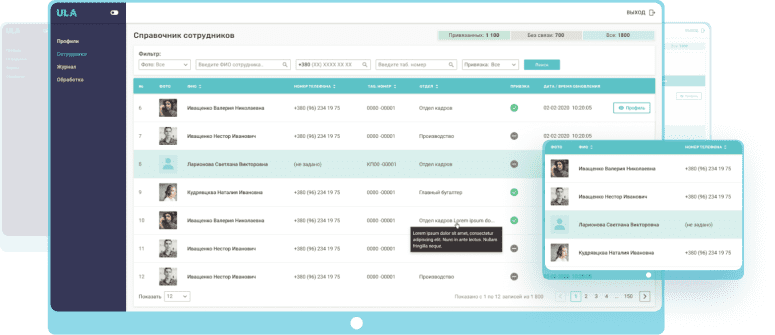
External systems integration capabilities
Support of the main standards and protocols of ONVIF, RTSP
Notification module for users
Maintaining complete statistics of obtained data
Logging of all user actions
and system errors
and system errors
Back-up of all information and
settings in case of technical failure
settings in case of technical failure
Data retention policy and storage
consumption control
consumption control
Flexible adaptation
to various business tasks
to various business tasks
Integration with the most common
surveillance systems
surveillance systems
A digital signature
module
module

ULA Police include
Transport detection
- Recognition of registration plates, brands, models, and colors of cars
- Reconstruction of the route of a vehicle during the day
- The ability to view the history of the appearance of a vehicle in the field of the video cameras view
- Traffic congestion
monitoring
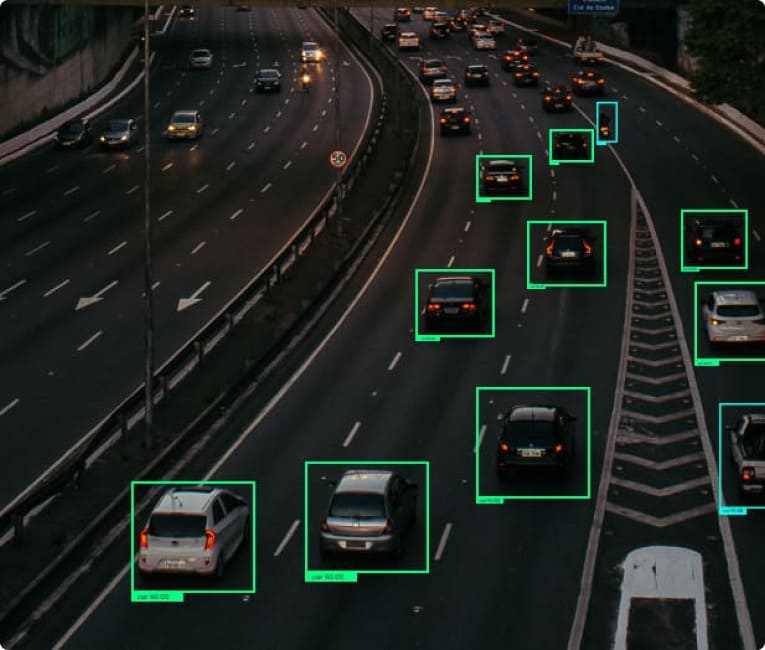
The ability to create vehicles operational database with capability to fulfil the search based on specified parameters:
- A brand / model of a vehicle (if there is an appropriate sample in the system)
- Full registration plate or a partial set of its symbols
- Checking vehicles for compliance with registration data
- Date, time of a search period
- Camera position and orientation
- Identification of vehicles on the wanted list
- A color of a vehicle
- Type of a vehicle
- Detection of vehicles in case of penalties/fines are imposed on their owners
- Detection of vehicles the owners of which violate the requirements of compulsory insurance
- Detection of traffic average speed, including speed violations.
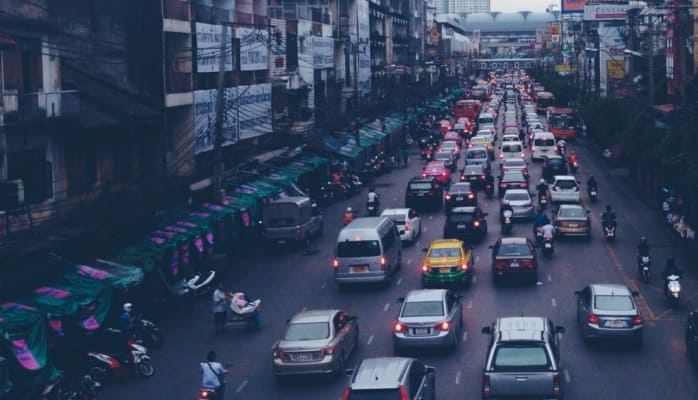

Traffic regulations monitoring
- Over speeding
- Violation of red-light
stopping rules - Violation of the rules
of overtaking - Violation of the rules for crossing intersections
- Violation of railway
crossing rules - Violation of stopping
and parking rules - Violation of oncoming traffic lanemovement rules
- Violation of traffic rules and stops on the road
- Violation of sidewalks and footpaths parking/movement rules


People
Face recognition
Creation of database with capability to fulfil the search based on specified parameters:
Creation of database with capability to fulfil the search based on specified parameters:
- Ethnicity (African / Caribbean, Arab, Caucasian, East Asian, Hispanic, Indian Subcontinent)
- Gender
(Male / Female / Unclassified) - AGE (Child 2-15 years, Teens/Young Adult 15-35 years, Adult 35-55 years, Elderly 55 years)
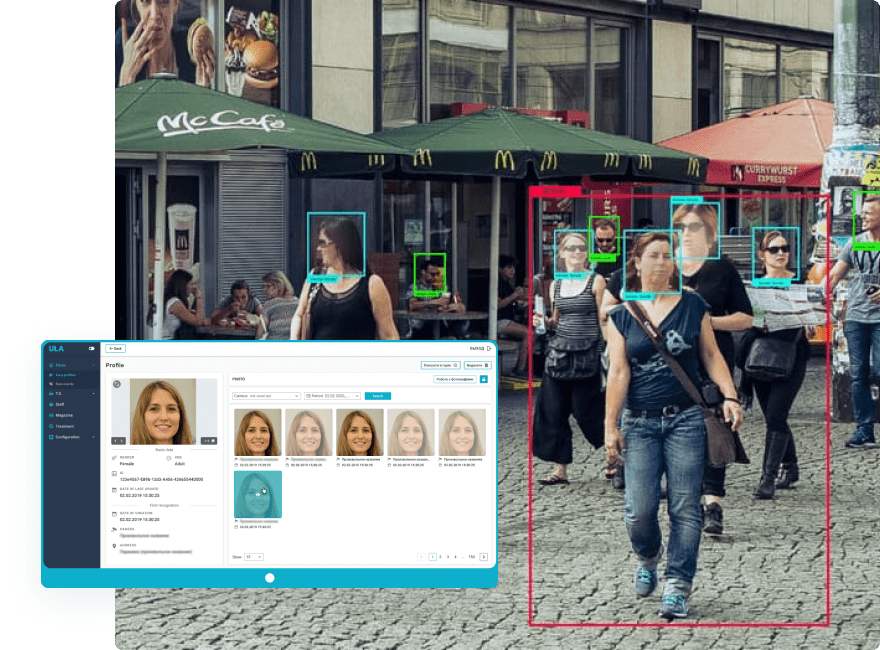
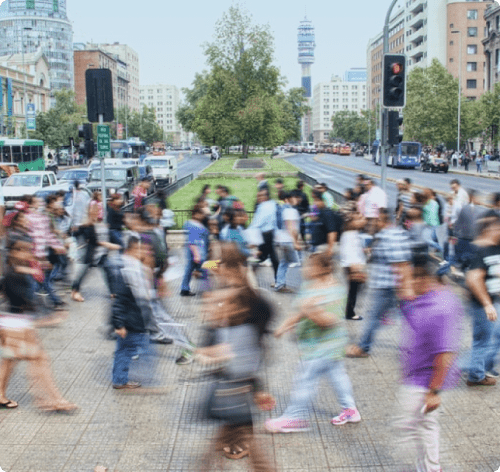
- Clothing elements color (upper/lower)
- Creation of an archive of faces with the ability to search through specified parameters
- Face recognition and real-time comparison with data from the sample database
- Crowd detection, including
restricted areas - Monitoring the movement of people in a specific direction
- Unusual behavior
detection. - Construction of people route movement, based on their appearing on cameras with the ability to view the route history
- Collecting of samples of faces
Situational analysis
- Detection, classification and tracking of given objects
- Monitoring
of social behavior - Monitoring compliance with the rules of social distance
(epidemics, pandemics, etc.) - Identification of man-made incidents (fire, accident, etc.)
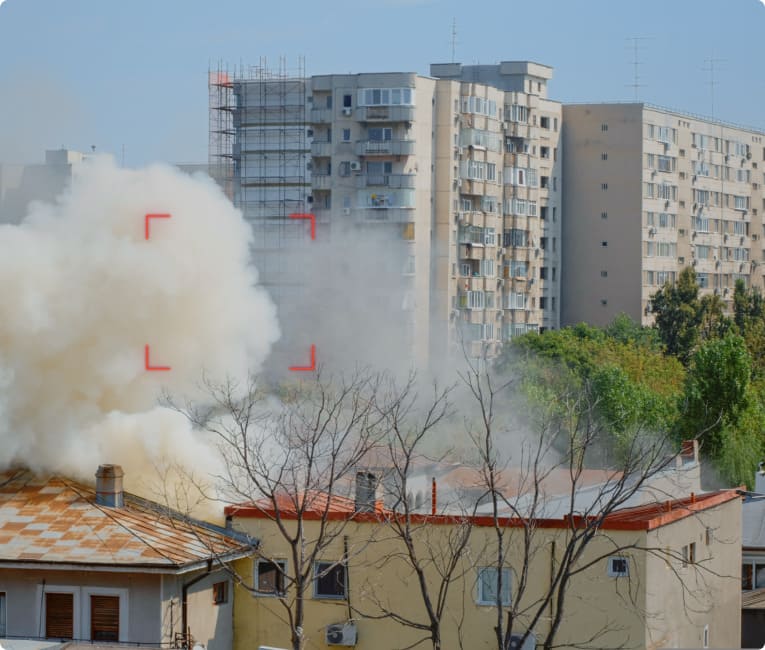
- Abandoned /
lost items identification - Violation of the rules
for walking animals - The system can be trained according to user request within a given scenario

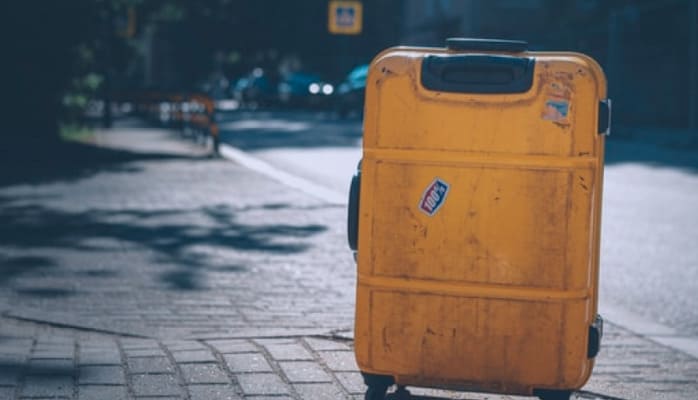
HAVE YOU GOT ANY QUESTIONS?
If you have any questions or something remains unclear, our specialists will find answers even to the most difficult questions.
Contact us